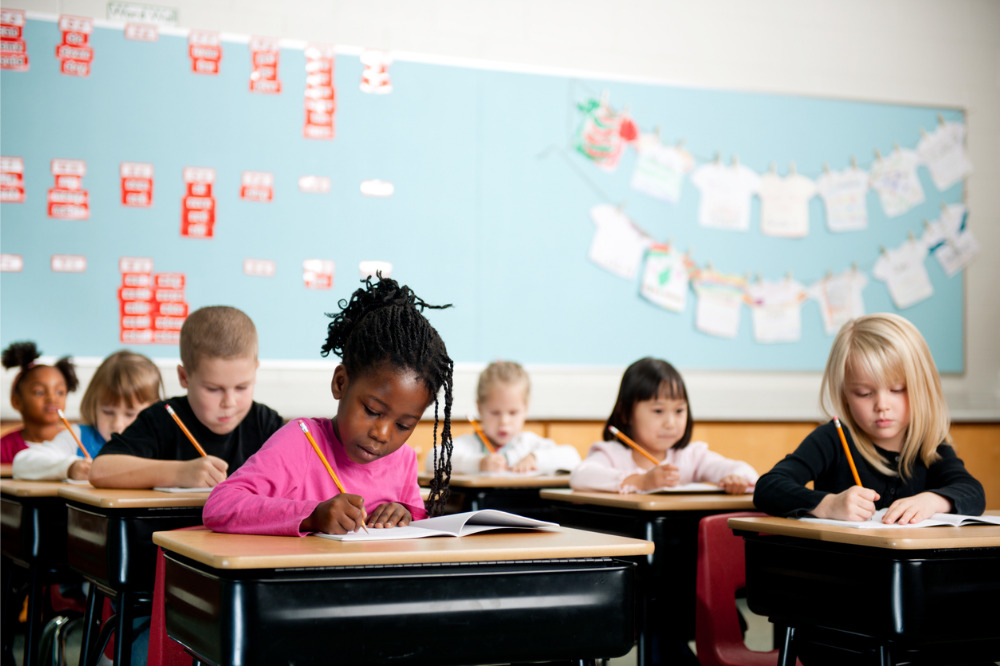
On Monday 23 May, Labor Leader Anthony Albanese was sworn in as Australia’s 31st Prime Minister, ending nine years of rule by the Coalition and paving the way historic changes to Australia’s education landscape.
Albanese says that from 2023, a $440m Schools Upgrade Fund will give public schools the same level of funding for new buildings and world-class facilities that independent schools receive.
Federal Labor will also spend $14m to employ 60 full-time First Nations language teachers in Australia’s schools, create 20,000 new university places with a focus on areas where there are currently skills shortages and abolish TAFE fees.
The Australian Government Primary Principals Association (AGPPA), which represents over 1.2 million students and 5300 government primary school leaders across Australia, welcomed the election outcome.
AGPPA is calling on the new government to ensure that all Australian government students receive their 100% of the Student Resource Standard (SRS), pointing out that The Gonski Report in 2012 identified over 2 decades of underfunding in government schools.
"Since that time government primary public students have been underfunded based on the minimum standard identified by Gonski," AGPPA president, Pat Murphy, said.
"We look to the Albanese Government to prioritise investment in public education as a critical lever in delivering long term economic growth."
Murphy said primary principals "play a pivotal role in the leadership of schools in leading and building communities and fulfilling the aspirations of the nation."
“Our association congratulates the new Labor Government and welcomes the opportunity to work with them in shaping the educational foundation of Australia.”
The Australian Education Union’s federal president, Correna Haythorpe, said Labor’s victory in the federal election is a “vote of confidence in the fundamental principle of equity in education.”
“We look forward to working with the new government to deliver their TAFE funding commitments, to expand universal access to preschool to three-year-olds and to bring public school funding up to a minimum of 100 percent of the Schooling Resource Standard as soon as possible,” Haythorpe said.
The Schooling Resource Standard (SRS), introduced in 2012 as part of the Gonski reforms, is an estimate of how much public funding a school needs to meet its students’ educational needs.
“The National Schools Reform Agreement between the Federal and the state and territory governments determines their funding commitments to schools and is due for renewal next year,” Haythorpe said.
“It’s an opportunity for the Labor Government to right the Morrison Government’s wrongs and contribute the federal government’s fair share of funding to Australia’s public schools.”
Jacinta Collins, National Catholic Education Commission’s (NCEC) executive director, said the Catholic sector looks forward to working with the new Albanese Government and the education minister, when appointed.
“As a priority, we would like to see the religious discrimination bill finalised early in the new parliament, so that religious rights are protected in the same way as other rights in Australia,” Collins told The Educator.
“The Labor government has committed to strengthening the teaching profession, supporting genuine school choice, access to early childhood education and ensuring affordable contributions for families in non-government schools, which is reassuring in a climate of increased cost of living and financial pressures on families.”
Beth Blackwood, CEO of the Association of Heads of Independent Schools of Australia, said one of the key tasks facing the new Government and its Minister for Education will be negotiation of the National School Reform Agreement.
“The NSRA is a key tool used by federal governments to influence the national school system, usually via conditions attached to federal funding,” Blackwood told The Educator.
“In the lead up to the election, Labor signalled that it would seek to use the NSRA to increase funding for government-owned schools in the states and territories and improve career pathways for teachers, possibly through changes in pay scales.”
Blackwood said all schools “will be watching the progress of those negotiations with interest”.
“AHISA is also interested to see how Labor will shape its proposed role of Minister for Youth. Under the Morrison government, the Minister for Education was also the Minister for Youth and substantial work was initiated in relation to the mental health and wellbeing of children and young people,” she said.
“We hope to see that focus continued and expanded through a stand-alone ministerial role.”
Matthew Johnson, national president of the Australian Special Education Principals Association (ASEPA), said the organisation has had a long association working with education ministers and looks forward to building on existing relationships with the new Labor Government.
“Labor had previously announced in their budget reply that they were committed to ‘full and fair’ level of school funding to fight disadvantage. ASEPA hopes that this will include funding for school infrastructure, First Nations initiatives and support for students with disabilities and complex needs,” Johnson told The Educator.
“Labor has previously committed to additional supports to tackle the youth mental health crisis and to increase access to specialised counselling services and this is welcomed.”
Johnson said ASEPA would also like to see a commitment to tangible support for principal wellbeing and principal workloads.
“Principals are the ones who lead schools, and as we continue to through challenging times, any additional initiatives that can help principals keep their focus on students rather than bean-counting or administrative tasks would be valued by the profession.”
The Australian Secondary Principals’ Association (ASPA) president, Andrew Pierpoint, has also welcomed the election result.
ASPA congratulates the Albanese led ALP for winning the Federal election on Saturday 21 May. We look forward to working with the new Minister to effect positive change in our secondary schools on behalf of Australia’s youth.”


